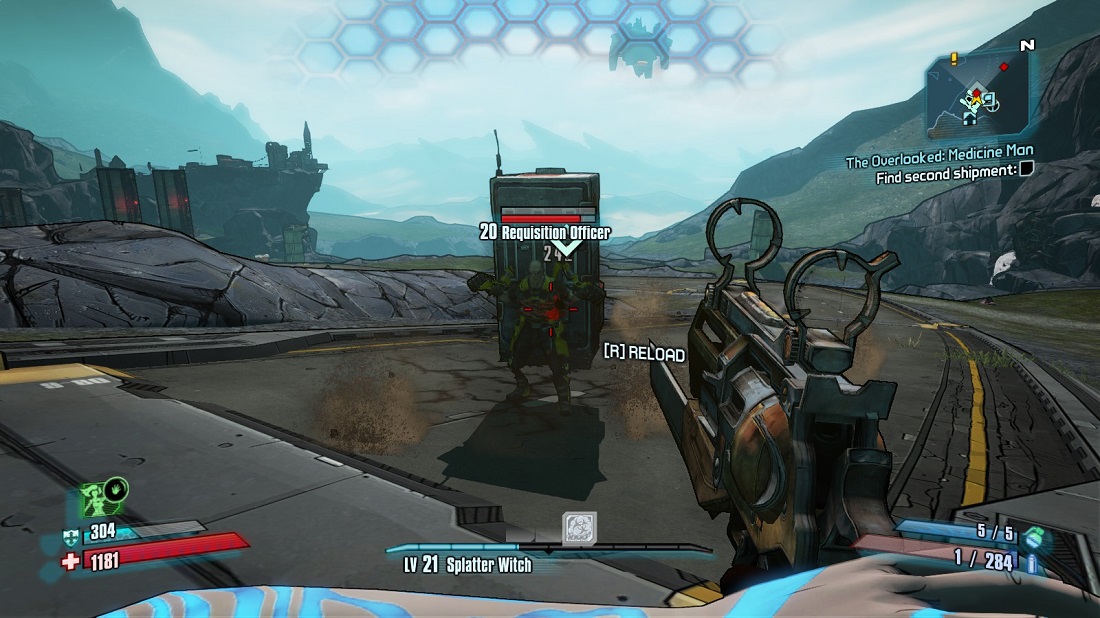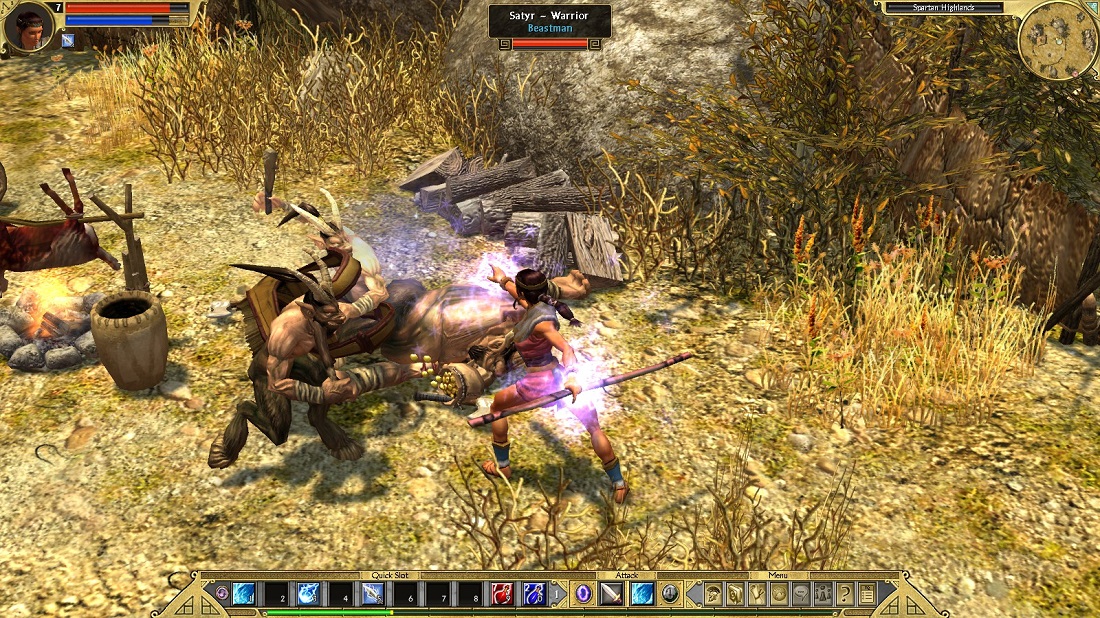And the rest
Grim Dawn: Grim Dawn has been making its way through Steam Early Access for a while now, but it’s certainly got the feel — if not the content — of a fully-formed game. It’s not as slick as the most recent Torchlight or Diablo, but it’s slightly more reactive than Path of Exile, although not as focused on total character customizability.
What sets Grim Dawn apart from most other action-RPGs is its focus on the campaign. Most games of the genre use quests and storyline purely to maintain forward progression — here’s the reason you have to go to the next zone. Grim Dawn’s model is closer to other RPGs, like The Elder Scrolls V: Skyrim or Dragon Age, where you get multiple quests in similar areas, and try to efficiently cross them off and gain their rewards. As such, Grim Dawn is probably the most self contained-feeling game in this, where the impulse is to progress through its narrative instead of progressing through its systems.
Borderlands: The Borderlands games are one of the biggest divergences from Diablo, but they’re worth mentioning because their loot model particularly is so Diablo-inspired. They’re first-person shooters that drop piles of randomized guns on players who build up customized characters in what should be a co-op mode. They’re not procedurally generated in terms of level design, but the embedded levels are filled with personality.
But Borderlands struggles with the application of first-person shooter gameplay to an action-RPG structure. The FPS is heavily reliant on player skill, while RPGs are built more around the skills of the character. As such, both Borderlands games can veer wildly in difficulty, where the combination of skill, level, and items doesn’t always fit together into a coherent whole — although the second game is significantly less frustrating in this respect. But if the loot aspect of the action-RPG that’s exciting, this is a good variation.
Din’s Curse: Din’s Curse comes from the days before Unity and other accessible, good-looking 3D modeling development tools, and it shows. This is not at all a contemporary-looking, or feeling, game. But if you can get past that, Din’s Curse has strategic depth and procedural randomness at a level beyond almost any other action-RPG — you have to defend your town from attacks as well as normal journeys.
X-Men Legends/Marvel Ultimate Alliance: Whatever licensing agreements have stopped the Legends/Ultimate Alliance games from being digitally distributed is unfortunate for players, as these are fast, fun, and occasionally deep superhero action-RPGs. There’s not a whole lot more fun in the genre than having Colossus pick Wolverine up for a fastball special. These are very much worth looking up if you can find them.
Marvel Heroes: This more recent offering theoretically serves as the next step after the Legends/Alliance games, but in going more massively multiplayer and free-to-play, it’s lost much of the controlled linearity of the earlier games. In other words, Marvel Heroes plays loose — like it’s more about finding a particular skill and exploiting it than constructing a character and understanding combat options.
But Marvel Heroes does offer a great deep dive into the Marvel universe. Beyond Captain America and Iron Man, there are also Kate Bishop skins for Hawkeye or playable side characters such as Squirrel Girl or Taskmaster. And it may not be balanced, but there’s not much more satisfying than finding a plaza full of bad guys as Daredevil and tossing a bouncing baton that critically hits all of them with a “ping, ping, ping” and cashing in on their loot.
Titan Quest: If you’re looking for a game that bridges the historical gap between Diablo 2 and the current crop of RPGs, Titan Quest may be the best bet. Its combat and space design feels similar to the controlled chaos of Diablo 3, although the customizability and variety in its skill system feels much more advanced than D2’s, and closer to Path of Exile and Torchlight 2. That said, Titan Quest’s interface and battle control feels decidedly archaic, with multiple clicks involved in targeting tiny spells. Another notable attribute of Titan Quest — its Greek mythology setting is dramatically different from the usual gothic fantasy of the genre.
Sacred 3: The Sacred series has been around almost as long as Diablo, but its reputation has taken a serious dent lately with the poorly reviewed latest installment, Sacred 3. All three installments are easily accessible digitally, however, for another view of the history of the genre.
Victor Vran: Very recently out of Early Access, Victor Vran is notable for accenting the “action” part of the genre dramatically, offering twin stick controls via either mouse+keyboard or a controller. What’s more, it does it shockingly well — controls are taut, and combat paced for quick, interesting choices for movement and weapon/skill choice. The metagame, meanwhile, presents specific goals for using all of its mechanics — finding secrets, using different weapons, killing quickly. Victor Vran has a few writing annoyances, and it’s a constrained game with none of the “you can play this forever” feel of the main three games mentioned, but it’s a worth mention.
VentureBeat's mission is to be a digital town square for technical decision-makers to gain knowledge about transformative enterprise technology and transact. Learn More



